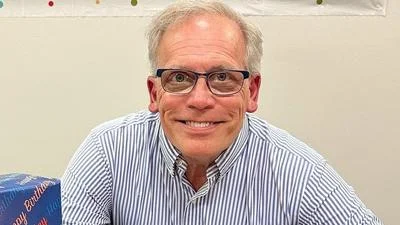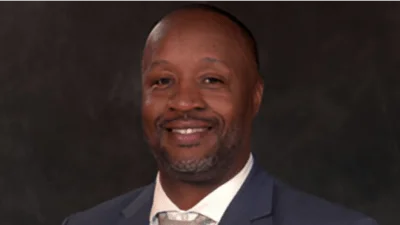Sen. Dave Syverson | Facebook/Senator Dave Syverson
Sen. Dave Syverson | Facebook/Senator Dave Syverson
Sen. Dave Syverson is speaking out against the push for Illinois to become a sanctuary state, claiming it is putting "undue pressure" on the state's budget as the cost of the state's free healthcare for undocumented immigrants spirals.
In a May 5 Facebook post, Syverson spoke on the trouble with Illinois being a sanctuary state.
“We warned when they began this program over a year ago that Illinois would become a magnet as the only state to provide this free healthcare to undocumented immigrants. When the Majority Party first introduced this legislation last year, they said the cost would be less than $200 million and would be serving an estimated 10,000 undocumented residents, ages 42 and older," Syverson said in his post. "By January, the Department of Healthcare and Family Services had adjusted their numbers upward to 52,000 participants at a cost of nearly $800 million. Then in a budget hearing on May 3, HFS adjusted their numbers upward again to an estimated 120,000 undocumented individuals to be covered by full Illinois taxpayer-paid healthcare at the cost of $1.1 billion. The program is exploding and will grow even faster when the federal Title 42 ends May 11 and a further surge of undocumented immigrants is expected.”
Sen. Dave Syverson was first elected to the Senate in 1993. He is a lifelong resident of Illinois. In the Senate, he is Spokesperson for the Insurance Committee, the Health and Human Services Committee, and the Appropriations (Health and Human Services) Committee, and is a member of the Public Health, Behavioral, and Mental Health, Licensed Activities, and Local Government committees. In addition, he serves as Co-Chair of the bipartisan Hospital Transformation Committee and the Medicaid Reform Committee. He is also a member of the Government Forecasting and Accountability Commission.
Among additional comments, he said he had been warning of this issue since it was brought to the table, adding that it would be inevitable that people would come to Illinois to make use of the free healthcare from all across the U.S.
“When you are the only state offering free broad-based healthcare for undocumented immigrants, common sense tells you unhealthy people from around the United States and from other countries will come to Illinois for care. There are many concerns with the massive growth of this program, one of those being the spending pressures it will have on other programs that fund the most vulnerable in our population – persons with developmental disabilities and senior citizens,” Syverson said. “Programs to help persons with developmental disabilities – whether in services, housing, or jobs programs – have been shortchanged for years, putting Illinois near the bottom compared to other states. Our focus as a state should be on taking care of our own citizens, especially the most vulnerable, before opening our doors to undocumented individuals from other countries and other states."
The state expanded healthcare coverage for immigrant adults up to age 64 in July 2022, and there is a separate program for individuals 65 and older.
The program is outpacing estimates, but the State Journal-Register notes too that "While the presentation laid out higher-than-expected costs for the program, it also noted per-enrollee costs for those age 65 and older are stabilizing because enrolled individuals are getting chronic conditions under control. For all groups, initial costs were higher due to the number of long-untreated conditions now receiving care."
In a recent article, the State Journal-Register wrote that as of the end of March, estimates by the Illinois Department of Healthcare and Family Services show it would cost $990 million to fund the program and provide state-funded healthcare to those aged 42 and older who would otherwise "qualify for Medicaid if not for their citizenship status." The paper reported that the program’s estimated cost is now $880 million over the $220 million price tag for the program in the Governor’s proposed 2023-2024 budget released in February.






 Alerts Sign-up
Alerts Sign-up